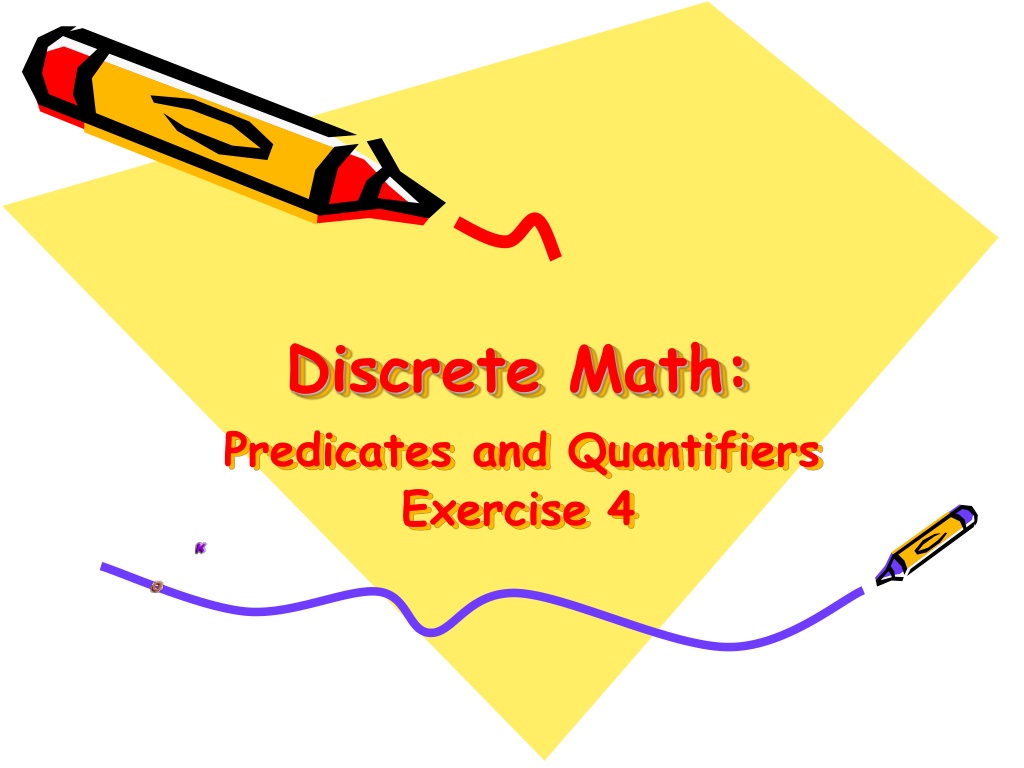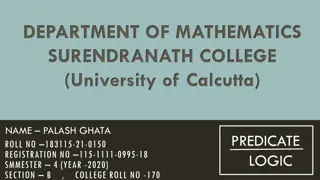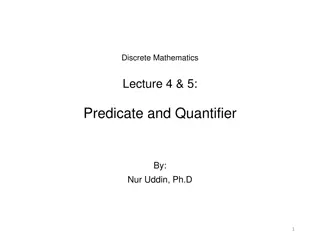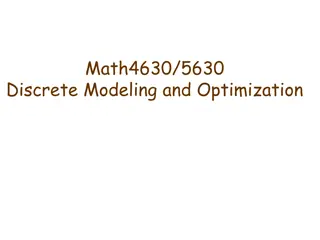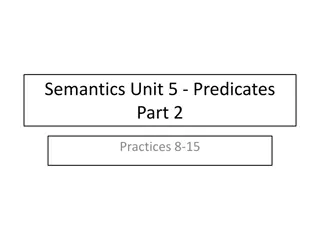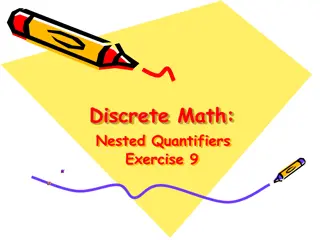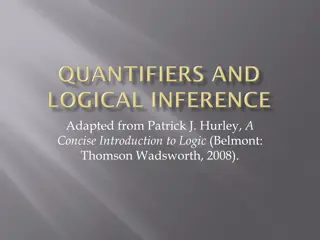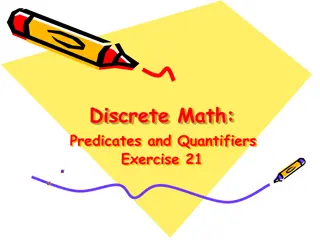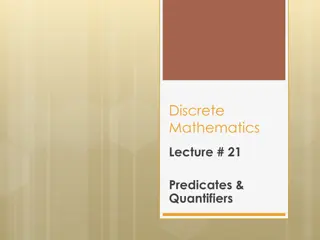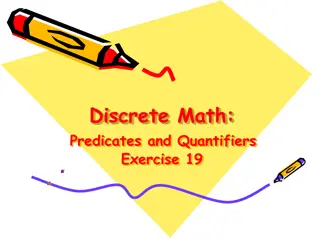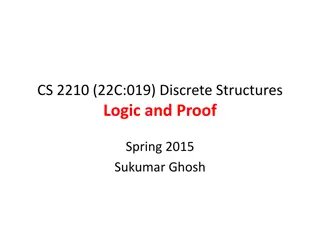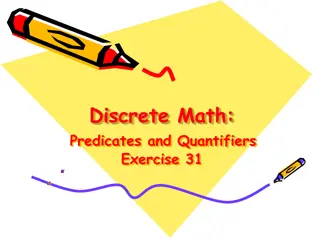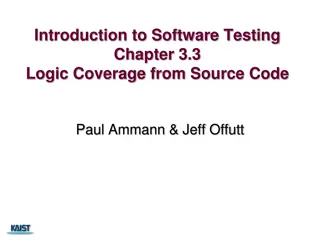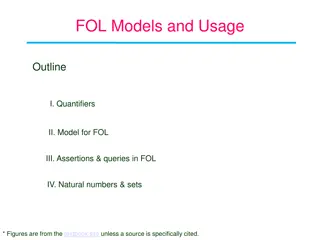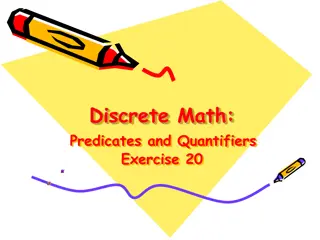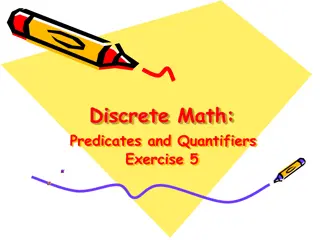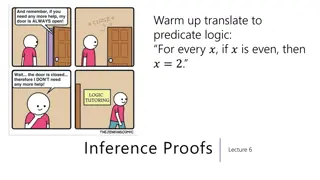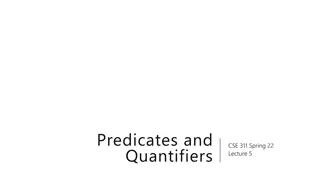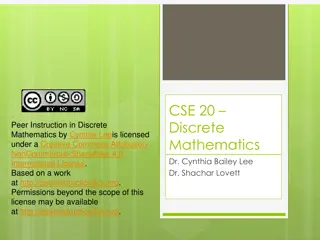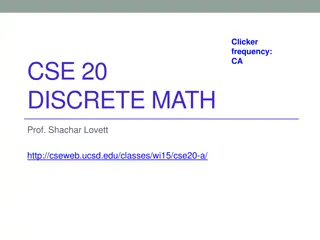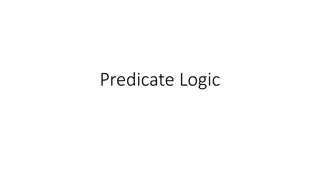Understanding Predicates and Quantifiers in Discrete Math
Learn how to translate statements involving predicates and quantifiers into English using a specific domain consisting of comedians and funny individuals. Explore the nuances of universal and existential quantifiers in expressing logical statements.
Download Presentation

Please find below an Image/Link to download the presentation.
The content on the website is provided AS IS for your information and personal use only. It may not be sold, licensed, or shared on other websites without obtaining consent from the author. Download presentation by click this link. If you encounter any issues during the download, it is possible that the publisher has removed the file from their server.
E N D
Presentation Transcript
Discrete Math: Predicates and Quantifiers Exercise 4
Exercise Translate these statements into English, where C(x) is x is a comedian and F(x) is x is funny and the domain consists of all people. a) x(C(x) F(x)) b) x(C(x) F(x)) c) x(C(x) F(x))
Solution a) This statement is that for every x, if x is a comedian, then x is funny. In English, this is most simply stated, "Every comedian is funny. b) This statement is that for every x in the domain (universe of discourse), x is a comedian and x is funny. In English, this is most simply stated, "Every person is a funny comedian." Note that this is not the sort of thing one wants to say. It really makes no sense and doesn't say anything about the existence of boring comedians; it's surely false, because there exist lots of x for which C(x) is false. This illustrates the fact that you rarely want to use conjunctions with universal quantifiers.
Solution c) This statement is that there exists an x in the domain such that if x is a comedian then x is funny. In English, this might be rendered, "There exists a person such that ifs/he is a comedian, then s/he is funny." Note that this is not the sort of thing one wants to say. It really makes no sense and doesn't say anything about the existence of funny comedians; it's surely true, because tbere exist lots of x for which C(x) is false (recall the definition of the truth value of p q). This illustrates the fact that you rarely want to use conditional statements with existential quantifiers. d) This statement is that there exists an x in the domain such that x is a comedian and x is funny. In English, this might be rendered, ''There exists a funny comedian" or "Some comedians are funny" or "Some funny people are comedians."
References Discrete Mathematics and Its Applications, McGraw-Hill; 7th edition (June 26, 2006). Kenneth Rosen Discrete Mathematics An Open Introduction, 2nd edition. Oscar Levin A Short Course in Discrete Mathematics, 01 Dec 2004, Edward Bender & S. Gill Williamson
